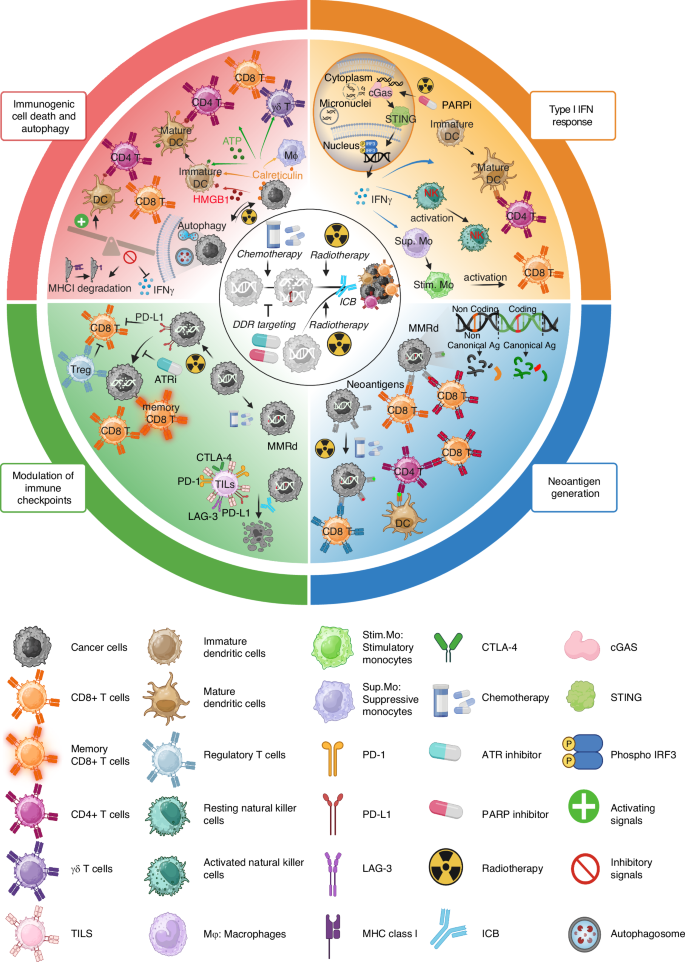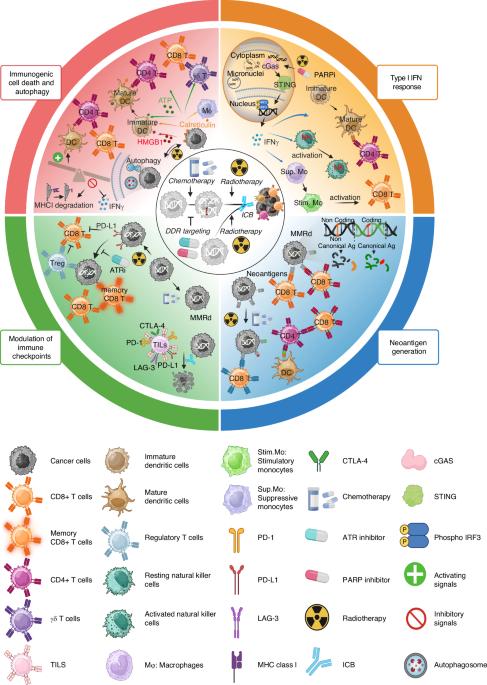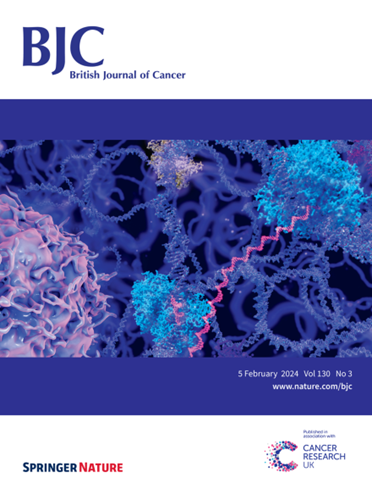结直肠癌中的 DNA 修复依赖性免疫原性责任:错误带来的机遇
IF 6.4
1区 医学
Q1 ONCOLOGY
引用次数: 0
摘要
结直肠癌(CRC)仍然是全球癌症死亡的主要原因之一。化疗仍然是主要的治疗方式,而免疫疗法对大多数 CRC 患者基本无效。重大发现强调,DNA损伤应答(DDR)机制的改变会导致各种癌症的细胞自主脆弱性和免疫相关脆弱性。在 CRC 中,大约 15% 的肿瘤显示出错配修复(MMR)机制的改变,导致大量新抗原和 I 型干扰素反应的激活。这些因素与免疫检查点阻断剂共同刺激了抗癌免疫。此外,同源重组(HR)途径的体细胞改变在 CRC 中较少见;这些缺陷导致基因组不稳定和端粒改变,支持在 HR 缺陷的 CRC 患者中使用聚(ADP-核糖)聚合酶(PARP)抑制剂。此外,其他 DDR 抑制剂,如共济失调性端粒增多症(Ataxia Telangiectasia)和 Rad3 相关蛋白(ATR)抑制剂,也在临床前模型和临床环境中显示出一定的疗效,与 MMR 能力无关。本综述旨在阐明 DNA 修复途径中预先存在或诱发的脆弱性如何成为提高肿瘤对 CRC 免疫疗法敏感性的机会。本文章由计算机程序翻译,如有差异,请以英文原文为准。


DNA repair-dependent immunogenic liabilities in colorectal cancer: opportunities from errors
Colorectal cancer (CRC) remains one of the major causes of cancer death worldwide. Chemotherapy continues to serve as the primary treatment modality, while immunotherapy is largely ineffective for the majority of CRC patients. Seminal discoveries have emphasized that modifying DNA damage response (DDR) mechanisms confers both cell-autonomous and immune-related vulnerabilities across various cancers. In CRC, approximately 15% of tumours exhibit alterations in the mismatch repair (MMR) machinery, resulting in a high number of neoantigens and the activation of the type I interferon response. These factors, in conjunction with immune checkpoint blockades, collectively stimulate anticancer immunity. Furthermore, although less frequently, somatic alterations in the homologous recombination (HR) pathway are observed in CRC; these defects lead to genome instability and telomere alterations, supporting the use of poly (ADP-ribose) polymerase (PARP) inhibitors in HR-deficient CRC patients. Additionally, other DDR inhibitors, such as Ataxia Telangiectasia and Rad3-related protein (ATR) inhibitors, have shown some efficacy both in preclinical models and in the clinical setting, irrespective of MMR proficiency. The aim of this review is to elucidate how preexisting or induced vulnerabilities in DNA repair pathways represent an opportunity to increase tumour sensitivity to immune-based therapies in CRC.
求助全文
通过发布文献求助,成功后即可免费获取论文全文。
去求助
来源期刊

British Journal of Cancer
医学-肿瘤学
CiteScore
15.10
自引率
1.10%
发文量
383
审稿时长
6 months
期刊介绍:
The British Journal of Cancer is one of the most-cited general cancer journals, publishing significant advances in translational and clinical cancer research.It also publishes high-quality reviews and thought-provoking comment on all aspects of cancer prevention,diagnosis and treatment.
 求助内容:
求助内容: 应助结果提醒方式:
应助结果提醒方式:


